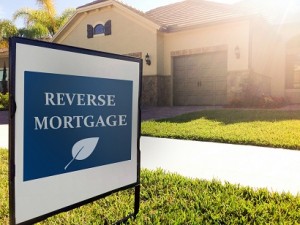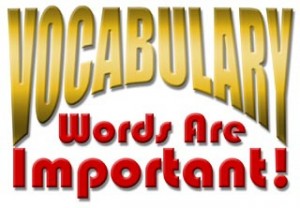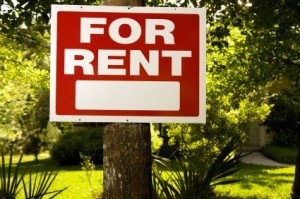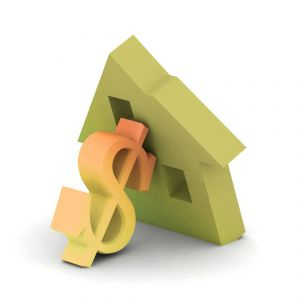 The answer to the question about whether any individual or family would be better off if they rent or buy a home can differ depending upon when the question is posed as well as the particulars of the available properties in either category. Even when the financial calculations make it clear that to buy a home in Highlands would result in significant savings, it’s possible that credit problems or simple cash inaccessibility render the choice moot—for the moment, anyway.
The answer to the question about whether any individual or family would be better off if they rent or buy a home can differ depending upon when the question is posed as well as the particulars of the available properties in either category. Even when the financial calculations make it clear that to buy a home in Highlands would result in significant savings, it’s possible that credit problems or simple cash inaccessibility render the choice moot—for the moment, anyway.
The reason a family budget is universally recognized as the single best way to get a handle on finances is because if you don’t know how much you’re spending in any given area, you won’t know when it needs to be curtailed. Given the size of monthly rent or mortgage outflows, it’s a pretty good idea for anyone with a long term outlook to know what the rent vs. buy a home tradeoffs are. The answer to that can be spectacular enough that a change in plan is called for.
For some time, one of the national real estate web sites—Trulia—has posted a calculator that yields an approximate answer to the rent or buy question. It is aimed at metro areas only, and concedes it’s at best an approximation, but when you enter “US Average” for the location, it comes up with a percentage difference. Right now, for the U.S. median home price of $180,800 and median rent price of $1,545, “buying a home” comes up as 44% cheaper than renting!
Now, there are a whole bunch of assumptions that should have us taking that answer with a shaker or two of salt. This assumes, for instance, that were you to buy a Highlands home with the national parameters you would be the happy beneficiary of “today’s mortgage rate,” which Trulia presents as 3.6%. Yes, this rate is actually being offered in some places to borrowers with spotless credentials, but counting on it would be iffy for most folks. Yet if you substitute 3.9%, buying a home is still 43% cheaper; a 4.2% loan makes the answer 41% cheaper.
Likewise, because the tax advantage gained when you buy a home is so stark, your income tax bracket can tip the buy vs. rent comparison greatly. If you move down from the assumption of a 25% tax rate (seems unlikely for the $180,000 median home buyer), even with a 15% tax rate, buying is 41% cheaper.
Sooooo, it looks like it’s always a very good idea to buy a house instead of renting it, right?
Wrong! The most important factor is the one that makes the most sense: “how long you intend to live there.” Its starting point assumption begins at 7 years. Move that down to 3 years and—all else being equal—the calculator comes up with buying being only 19% cheaper. Assume 2 years, and the buy vs. rent answer is that the costs are about the same. And at 1 year, renting is 37% cheaper than buying!
The precision of these percentages are unlikely to be spot-on for any given local individual or family, but the answers are probably useful anyway. It does indicate that for anyone planning on staying put locally for at least 3 or 4 years, taking a closer look at the rent a home/buy a home financial impacts will be worthwhile. I can help with current realistic Highlands specifics, so why not give me a call?



 Whenever the words “reverse mortgage” are uttered, any Highlands TV viewer immediately makes the connection with one of several celebrity spokesmen who blanket the airwaves with commercials touting the concept. If you listen carefully, those reverse mortgage ads do actually describe the product with legal accuracy. If you have the standard degree of sales resistence most of us have developed after years of exposure to Madison Avenue pitches, you probably guess that instead of relying solely upon the celebrity spokesman’s trustworthiness, you’d better investigate further before running out and applying. Most people do.
Whenever the words “reverse mortgage” are uttered, any Highlands TV viewer immediately makes the connection with one of several celebrity spokesmen who blanket the airwaves with commercials touting the concept. If you listen carefully, those reverse mortgage ads do actually describe the product with legal accuracy. If you have the standard degree of sales resistence most of us have developed after years of exposure to Madison Avenue pitches, you probably guess that instead of relying solely upon the celebrity spokesman’s trustworthiness, you’d better investigate further before running out and applying. Most people do. If 90% of home buyers use the internet at some point in their search, the percentage who go to the Highlands listings has to be close to the same ballpark. It’s hard to imagine anyone NOT wanting to take at least a peek at the current listings. Even if they have already settled on a target property, curiosity would send most of us to check out the way it’s described in its Highlands listing.
If 90% of home buyers use the internet at some point in their search, the percentage who go to the Highlands listings has to be close to the same ballpark. It’s hard to imagine anyone NOT wanting to take at least a peek at the current listings. Even if they have already settled on a target property, curiosity would send most of us to check out the way it’s described in its Highlands listing.
 Whenever an unplanned and unwelcome financial situation develops, a Highlands mortgage-holder can find himself or herself in the onerous position of being unable to keep up with the monthly home loan payments. If the unhappy situation continues long enough, the likely result is a foreclosure or short sale. In addition to losing the property, the impact on personal credit then takes years to undo. That means it takes that much longer for a consumer to acquire a new home and start to build equity again.
Whenever an unplanned and unwelcome financial situation develops, a Highlands mortgage-holder can find himself or herself in the onerous position of being unable to keep up with the monthly home loan payments. If the unhappy situation continues long enough, the likely result is a foreclosure or short sale. In addition to losing the property, the impact on personal credit then takes years to undo. That means it takes that much longer for a consumer to acquire a new home and start to build equity again. The outlook for owners of Highlands rental properties has been buoyant for some time, but last month a widely-publicized report added to the long range outlook. The study presented multiple scenarios in which demand is likely to outpace the supply of rental properties in the U.S., creating a market bound to reward their owners. Not such good news for tenants, though—or, as The Wall Street Journal summarized, “Renting is unlikely to get easier anytime soon.”
The outlook for owners of Highlands rental properties has been buoyant for some time, but last month a widely-publicized report added to the long range outlook. The study presented multiple scenarios in which demand is likely to outpace the supply of rental properties in the U.S., creating a market bound to reward their owners. Not such good news for tenants, though—or, as The Wall Street Journal summarized, “Renting is unlikely to get easier anytime soon.”

 The way the media treated last week’s federal funds rate announcement by the Federal Reserve Board was a convincing demonstration of how much importance is placed on that singular piece of the financial puzzle. That rate may not be directly tied to Highlands mortgage interest rates, but since it determines lenders’ borrowing costs, its effect is considerable.
The way the media treated last week’s federal funds rate announcement by the Federal Reserve Board was a convincing demonstration of how much importance is placed on that singular piece of the financial puzzle. That rate may not be directly tied to Highlands mortgage interest rates, but since it determines lenders’ borrowing costs, its effect is considerable.
